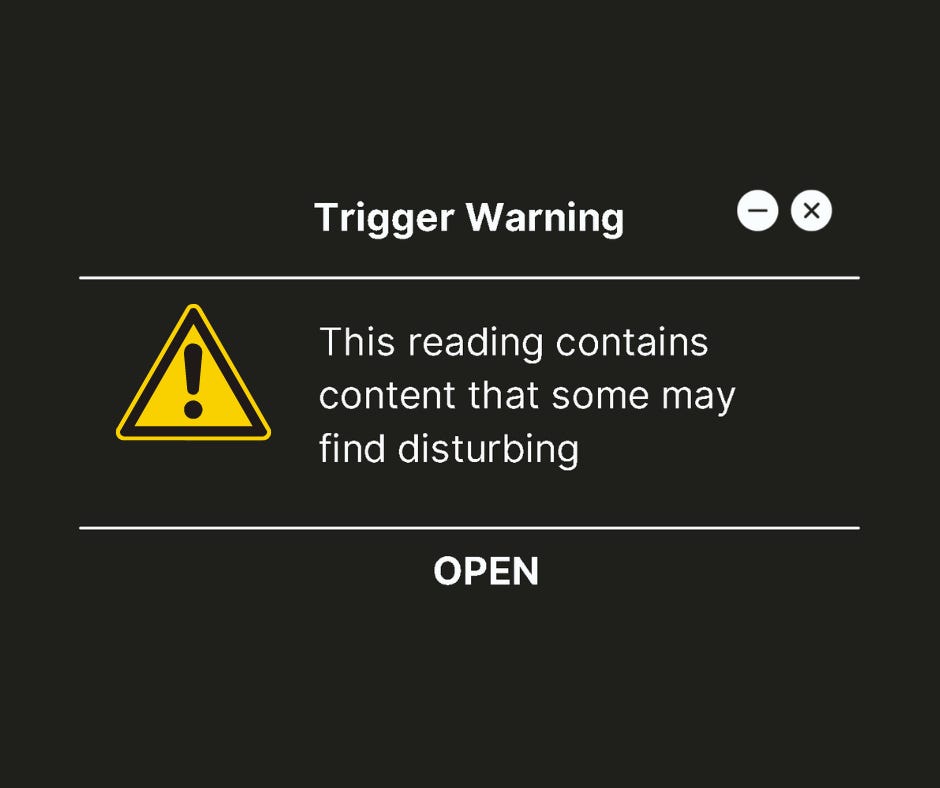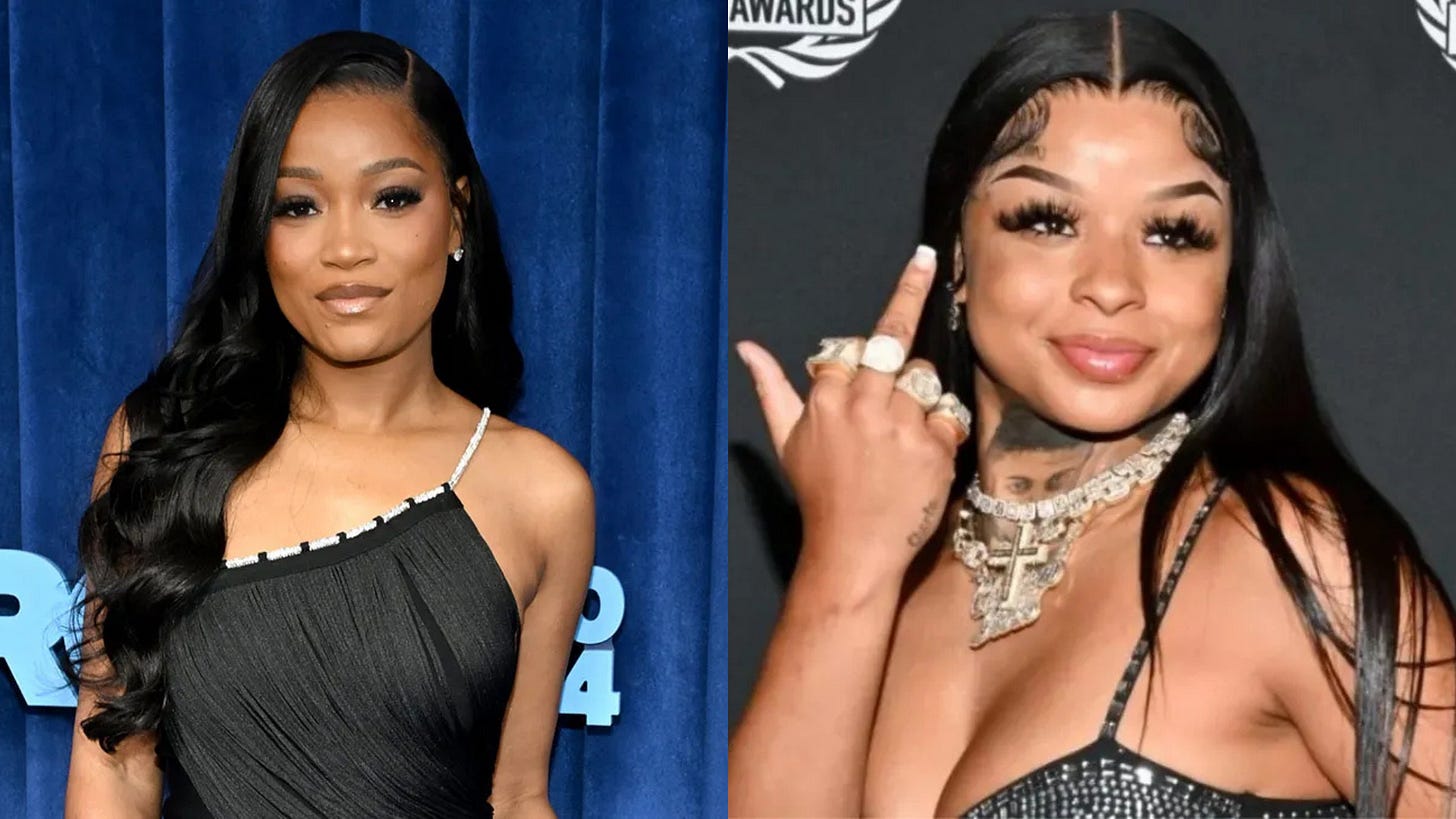Child-on-Child S3xual Abuse (COCSA) and Its Effects on Households
Abuse In The Culture - 11/21/2024
Trigger Warning: This newsletter contains discussions and references to abuse, including emotional, physical, and sexual abuse. It’s understood that these topics can be distressing and may trigger intense emotional responses.
Child-on-child sexual abuse (COCSA) is a deeply troubling but often overlooked phenomenon that disrupts households, relationships, and communities. Defined as harmful sexual interactions initiated by a minor against another child without consent or understanding, COCSA can lead to profound psychological, emotional, and social repercussions for all involved. The stigma, disbelief, and complexities surrounding such incidents make it difficult for families and society to navigate them with empathy and clarity. Recent high-profile cases, such as Keke Palmer’s poignant reflections on childhood abuse and the allegations involving Chrisean Rock and her sister Tesehki, have reignited conversations about COCSA and its lasting impact.
Unlike adult-on-child abuse, COCSA occurs between peers or siblings and often stems from exposure to inappropriate content, lack of boundaries, or unresolved trauma in the offending child. It is not merely “exploration” or “curiosity,” as it involves coercion, power imbalance, or harm. Victims often struggle with feelings of shame, betrayal, and confusion, while perpetrators—who are also minors—may require intensive intervention to address underlying issues.
Households affected by COCSA face unique challenges:
Psychological impact on the victim: Victims may develop anxiety, depression, and trust issues that last into adulthood.
Strain on family dynamics: Parents or guardians are often torn between supporting the victim and addressing the behavior of the perpetrating child.
Social stigma: Families may become isolated due to judgment or fear of legal consequences.
Difficulty navigating justice systems: Families are often caught between protecting both children and seeking appropriate intervention.
Keke Palmer, a prominent actress and singer, recently opened up about her own experience with sexual abuse during childhood. In a heartfelt video, she shared that the abuse came from another child, highlighting the complexities of COCSA. Palmer emphasized how deeply such experiences can shape one’s self-esteem, trust, and interpersonal relationships, even into adulthood. Her vulnerability has sparked widespread discussions about the often-hidden reality of peer-to-peer abuse.
Palmer’s testimony underscores several key issues:
The normalization of silence: Many victims, particularly in childhood, are taught not to speak up about abuse, fearing repercussions or disbelief.
The long-term effects: Trauma from COCSA can resurface in adulthood, influencing personal and professional life.
The need for awareness: Palmer’s courage in speaking out encourages other survivors to break the silence and seek help.
Her story is a reminder of how COCSA often goes unrecognized, leaving victims to process their trauma in isolation. Families, educators, and caregivers must create environments where children feel safe to report abuse, even if the perpetrator is another minor.
The controversy involving Chrisean Rock and her sister Tesehki has highlighted the divisions that arise when allegations of abuse surface within families. Rock accused her sister of molesting a child, a claim that Tesehki vehemently denied. This public conflict has drawn mixed reactions, with supporters rallying behind both women and skeptics questioning the validity of the allegations.
Key takeaways from this situation include:
Believing victims versus seeking evidence: Social media discussions often polarize into “believe the victim” versus “innocent until proven guilty,” leaving little room for nuanced understanding.
Family disruption: Allegations of abuse, whether proven or not, can fracture family bonds and create lasting resentment.
The role of social media: Publicizing such issues often complicates resolution and invites external judgment that may not consider all facts.
The Rock-Tesehki case underscores the challenges families face when attempting to address COCSA or similar accusations. It also highlights the societal tendency to pit individuals against each other, rather than focusing on collective healing and justice.
The societal impact of COCSA cases, particularly high-profile ones, is far-reaching. These incidents challenge collective assumptions about victimhood, accountability, and support. Several themes emerge in the aftermath of such revelations:
1. The Difficulty in Believing Victims
In many cases, victims—especially children—are not immediately believed. This disbelief stems from:
Cognitive dissonance: The idea that children can harm each other is uncomfortable for many adults.
Misconceptions about children: Adults may assume children are “too young” to engage in harmful behavior intentionally.
Fear of consequences: Families may resist addressing abuse out of fear for the perpetrating child’s future or legal repercussions.
The cultural stigma around abuse often silences victims, compounding their trauma. Public figures like Keke Palmer play a vital role in shifting this dynamic by validating survivors’ experiences and advocating for systemic change.
2. The Perpetrator as a Victim
COCSA cases blur the lines between victim and offender, as child perpetrators are often grappling with their own trauma. This duality can evoke conflicting emotions in families and communities:
Sympathy versus accountability: How do we hold minors accountable without vilifying them?
Rehabilitation over punishment: Experts advocate for therapeutic interventions rather than punitive measures, recognizing that children are still developing cognitively and emotionally.
3. The Role of Social Media
Platforms like Instagram and YouTube amplify discussions about abuse but also create polarizing narratives. The Chrisean Rock and Tesehki situation illustrates how public scrutiny can hinder productive dialogue. Social media encourages binary thinking—believe one person or the other—without considering the nuances of COCSA cases.
4. The Intersection of Race and Class
Public perceptions of COCSA are often shaped by systemic biases. Black families, like those of Keke Palmer and Chrisean Rock, face additional layers of scrutiny due to racial stereotypes. These biases can:
Influence legal outcomes: Authorities may treat allegations differently based on the race or socioeconomic status of those involved.
Perpetuate mistrust: Marginalized families may hesitate to seek help, fearing judgment or unfair treatment.
COCSA incidents profoundly affect the fabric of households. Parents and caregivers often face overwhelming guilt, questioning their ability to protect their children. Siblings may struggle with divided loyalties, and extended families may distance themselves to avoid conflict.
Parents and Caregivers
Emotional toll: Parents often feel guilt, shame, and confusion upon learning of COCSA within their household.
Balancing roles: They must simultaneously support the victim, address the perpetrator’s behavior, and manage their own emotions.
Navigating resources: Accessing therapy, legal aid, and support groups can be daunting, especially for families with limited means.
Siblings
Witnessing trauma: Non-involved siblings may internalize the tension, leading to anxiety or guilt.
Choosing sides: Siblings may feel pressured to align with either the victim or the accused, deepening household rifts.
Extended Family
Judgment and alienation: Relatives may withdraw or assign blame, exacerbating household stress.
Support or sabotage: Depending on their perspectives, extended family members can either help mediate or inflame the situation.
Addressing COCSA requires a multi-pronged approach involving education, mental health support, and systemic reform.
1. Educating Families
Teach children about boundaries and consent in age-appropriate ways.
Encourage open communication so children feel safe reporting inappropriate behavior.
Equip parents with resources to identify and address warning signs of COCSA.
2. Providing Mental Health Support
Therapy for both victims and perpetrators is essential for healing and prevention.
Support groups can help families process their emotions and navigate the complexities of COCSA.
3. Reforming Legal and Social Systems
Advocate for child-focused interventions that prioritize rehabilitation over punishment.
Train educators, counselors, and legal professionals to handle COCSA cases with sensitivity.
4. Leveraging Public Figures
Survivors like Keke Palmer can inspire systemic change by raising awareness and advocating for resources.
Their stories remind us that COCSA is not an isolated issue but a societal challenge requiring collective action.
COCSA is a difficult but critical topic that demands attention, compassion, and action. Stories like those of Keke Palmer and the Chrisean Rock-Tesehki conflict shine a light on the lasting impact of childhood abuse and the societal divisions it creates. By believing victims, supporting families, and addressing systemic failures, we can work toward a future where no child or household bears the burden of silence and shame.
Every story of abuse deserves to be heard with empathy and understanding. Supporting victims starts with creating safe spaces where they feel empowered to share their experiences without fear of judgment or disbelief. By amplifying their voices and acknowledging their pain, we take a critical step toward healing, justice, and societal change.
Victims of COCSA, like all survivors, need to know they are not alone. Sharing their stories, as Keke Palmer courageously did, not only validates their experiences but also inspires others to speak up, seek help, and demand accountability. These narratives shed light on issues that often remain hidden, breaking the cycles of silence and stigma that enable abuse to persist.
As a community, we must stand united in supporting victims, believing them, and advocating for systemic reforms that prioritize prevention and recovery. By listening, learning, and acting, we can create a world where every child feels safe, valued, and protected.
High-Profile Domestic Violence Cases in Hollywood: A Deep Dive into Division, Accountability, and Industry Culture
Trigger Warning: This newsletter contains discussions and references to abuse, including emotional, physical, and sexual abuse. It’s understood that these topics can be distressing and may trigger intense emotional responses.








Very important. This has affected my family and was not dealt with properly. I’m not the victim, but I worry about how it will affect my family member later in life because of how it was mishandled.
Keke Palmer’s interview helped me to exhale a bit, and your piece furthered that. Thank you. You have no idea🫶